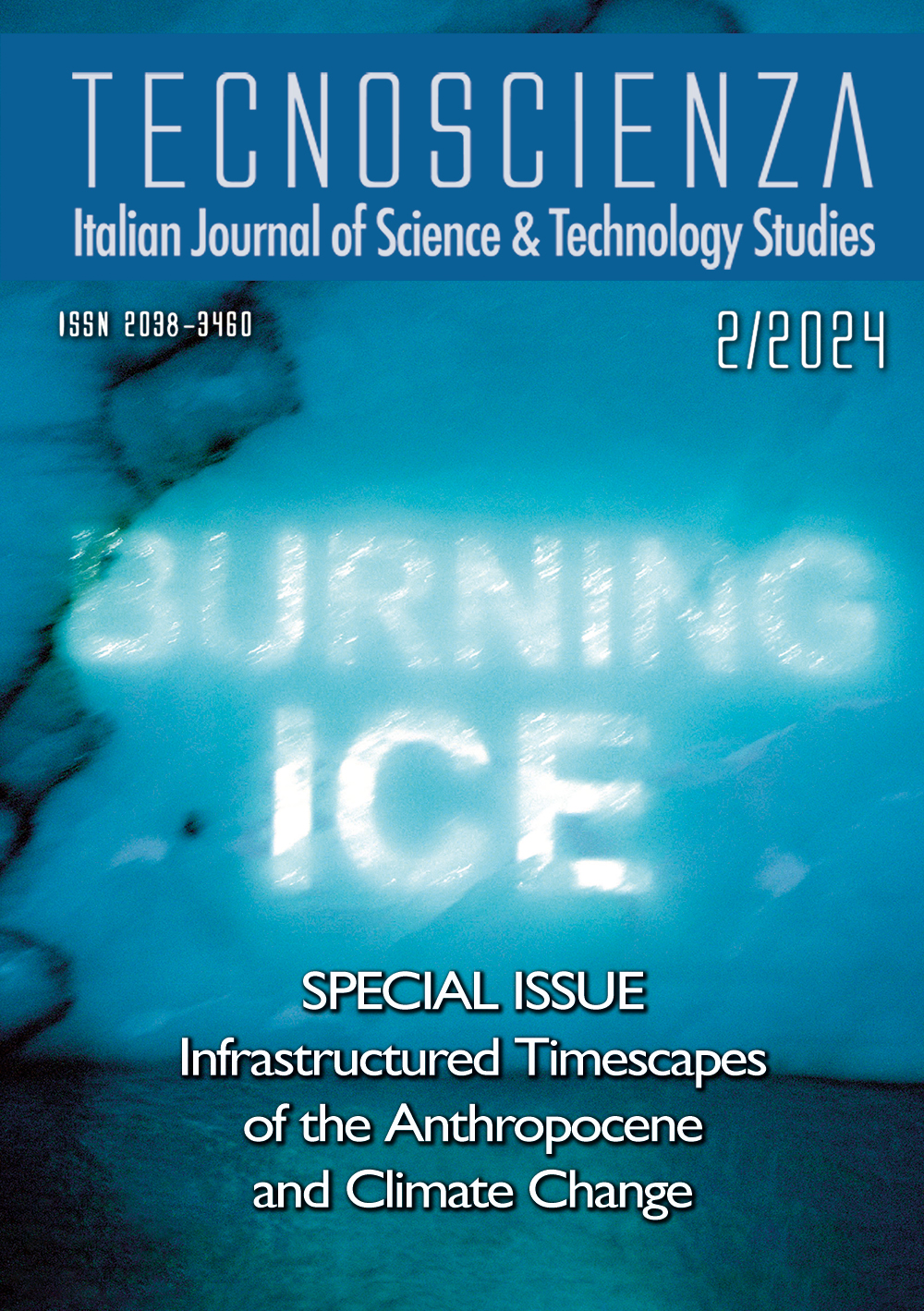Time, Infrastructure and Knowledge: Rethinking Temporality in the Anthropocene
DOI:
https://doi.org/10.6092/issn.2038-3460/21165Keywords:
Anthropocene, regime of historicity, politics of time, infrastructural capitalism, uncertizenship, natural historyAbstract
The contributions included in this Crossing Boundaries section reflect upon infrastructural temporality, chronopolitics and natural history in relation to the Anthropocene and climate change. Vando Borghi examines infrastructure capitalism and regimes of historicity, arguing that infrastructural synchronization dispossesses individuals of agency, producing “uncertizenship”. He invites us to delve into “ruins thinking” and an “epistemology of coordination” to inhabit this condition and re-territorialize infrastructures. Luigi Pellizzoni interrogates whether the Anthropocene narrative represents a break from or continuity with late capitalist modernity’s politics of time. Addressing the concept of “non-trivial futures”, he argues that the Anthropocene aligns with and strengthens capitalism’s recursive temporality and secular eschatology, opening space for conservative or reactionary designs. Finally, Paolo Savoia traces a “revival” of natural history in the environmental humanities, enabled by temporal short-circuits between the 16th and 21st centuries. Early modern natural history is revealed as preluding anthropology that blurred nature-culture divides and anticipates a notion of “third nature” which challenges the scalability logic characteristic of modernity.
Downloads
Published
How to Cite
Issue
Section
License
Copyright (c) 2025 Vando Borghi, Luigi Pellizzoni, Paolo Savoia

This work is licensed under a Creative Commons Attribution 4.0 International License.





